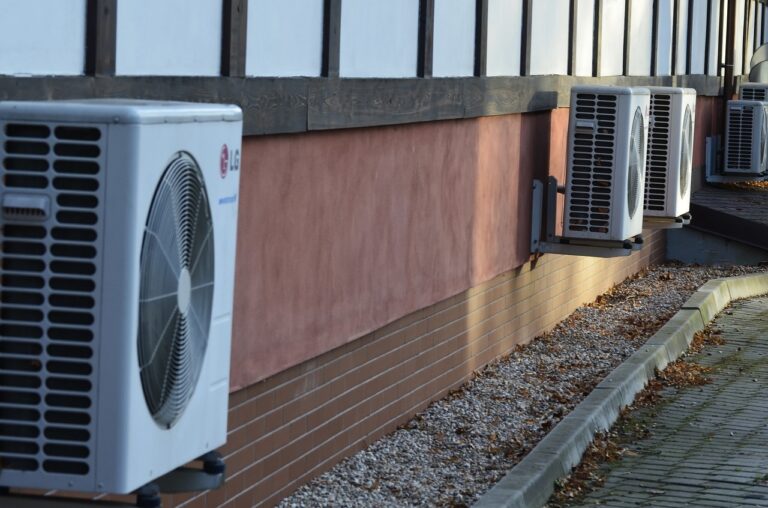Air Conditioner vs. Heat Pump: Navigating the Choice for Your Indoor Comfort
When it comes to maintaining indoor comfort, the choice between an air conditioner and a heat pump can be a pivotal decision. Both systems play a crucial role in regulating temperature, but they operate differently. In this blog post, we’ll explore the distinctions between air conditioners and heat pumps to help you make an informed decision based on your specific heating and cooling needs.
Choosing between an air conditioner and a heat pump depends on your climate, heating needs, and budget considerations. While air conditioners excel in cooling, heat pumps offer a versatile solution by providing both heating and cooling capabilities. Understanding the differences helps you select the system that aligns best with your specific comfort requirements and local climate conditions.
Cooling vs. Dual Functionality
The decision between an air conditioner and a heat pump revolves around the fundamental distinction of cooling versus dual functionality. Air conditioners specialize in providing efficient cooling for indoor spaces, making them an ideal choice for regions with predominantly hot climates. They excel at removing heat from the indoor air and maintaining a comfortable temperature during warm seasons.
On the other hand, heat pumps offer a dual functionality by providing both heating and cooling capabilities. This versatility makes them a practical solution for climates that experience temperature variations throughout the year. During colder seasons, heat pumps can extract heat from the outdoor air and transfer it indoors to warm the space. In warmer months, they function similarly to air conditioners by removing heat from the indoor environment.
The choice between cooling-focused air conditioners and dual-functional heat pumps depends on your specific climate, heating needs, and budget considerations. If your primary concern is effective cooling and you live in an area with a predominantly warm climate, an air conditioner may suffice. However, for regions with fluctuating temperatures or a need for both heating and cooling, a heat pump offers a comprehensive solution. Understanding these differences enables homeowners to make informed decisions tailored to their comfort requirements and local climate conditions.

Heating Efficiency
When comparing an air conditioner to a heat pump, the aspect of heating efficiency plays a crucial role in the decision-making process. Air conditioners, designed primarily for cooling purposes, lack the heating functionality of heat pumps. Heat pumps, on the other hand, are engineered to provide both heating and cooling capabilities, making them a versatile solution for year-round comfort.
The heating efficiency of a heat pump is achieved through the process of extracting heat from the outdoor air and transferring it indoors. This mechanism allows heat pumps to efficiently warm indoor spaces even in colder weather. However, it’s essential to note that the efficiency of heat pumps can decrease as outdoor temperatures drop significantly. In extremely cold climates, supplementary heating may be required.
In contrast, air conditioners do not possess the inherent ability to provide heating. As a result, in regions where heating is a significant consideration, relying solely on an air conditioner may not be practical, and additional heating systems might be necessary.
Ultimately, the decision between an air conditioner and a heat pump depends on your specific heating needs and the climate of your region. If efficient heating during colder months is a priority, a heat pump offers the advantage of dual functionality. However, for areas with milder winters where cooling is the primary concern, an air conditioner may suffice. Understanding the heating efficiency of each system allows homeowners to make a well-informed choice that aligns with their indoor comfort requirements.
Use of Refrigerant
In the realm of air conditioning and heating systems, the use of refrigerant is a critical factor that distinguishes air conditioners from heat pumps. Both systems utilize refrigerants to facilitate the heat exchange process and achieve temperature regulation, but the way they handle this refrigerant sets them apart.
Air conditioners primarily focus on cooling and use refrigerant to absorb heat from the indoor air and release it outdoors. This cycle involves the refrigerant changing from a liquid to a gas and back to a liquid, enabling the removal of heat and providing cool air indoors.
Heat pumps, being dual-functional, leverage refrigerant not only for cooling but also for heating. During colder seasons, a heat pump reverses its cycle, extracting heat from the outdoor air and transferring it inside. The refrigerant plays a crucial role in this process, allowing the heat pump to efficiently warm indoor spaces.
Understanding the role of refrigerant in air conditioners and heat pumps is essential for homeowners making decisions about their indoor comfort systems. It ensures awareness of the unique capabilities of each system and how they use refrigerant to achieve cooling or both heating and cooling functionalities. Additionally, staying informed about refrigerant types and environmental considerations can guide homeowners in making eco-friendly choices when selecting between an air conditioner and a heat pump for their specific climate and comfort needs.
Energy Efficiency
When navigating the choice between an air conditioner and a heat pump for your indoor comfort, energy efficiency emerges as a pivotal consideration. The distinction between the two systems lies not only in their primary functions but also in how they manage energy.
Air conditioners are dedicated to cooling and excel in efficiently removing heat from indoor spaces. However, they operate using a unidirectional process, consuming electrical energy to pump heat out of the building. While effective for cooling, air conditioners do not possess the dual functionality of providing heating.
On the other hand, heat pumps offer a more comprehensive approach to energy efficiency. They leverage a reversible cycle, extracting heat from the outdoor air to warm indoor spaces during colder seasons and vice versa for cooling. This dual functionality contributes to year-round energy efficiency, as the system can adapt to varying climate conditions. While the efficiency of heat pumps can decrease in extremely cold weather, advancements in technology have improved their performance, making them viable for a broader range of climates.
Understanding the energy efficiency of both systems allows homeowners to align their choice with specific climate considerations and heating needs. For regions with mild winters and a focus on cooling, an air conditioner might suffice. However, for those experiencing varied temperatures and seeking a versatile solution, a heat pump stands out as a more energy-efficient and sustainable choice for maintaining indoor comfort throughout the year.
Climate Suitability
The decision between an air conditioner and a heat pump when navigating indoor comfort is intricately tied to the climate suitability of your region. Each system has its strengths and weaknesses, making it crucial to consider your local climate to determine the most suitable option.
Air conditioners excel in regions with hot climates where cooling is the primary concern. They efficiently remove heat from indoor spaces, providing a refreshing and cool atmosphere. In areas where winters are mild, and heating demands are minimal, air conditioners can be a practical choice for maintaining comfort during warmer months.
Heat pumps, with their dual functionality for both heating and cooling, are particularly advantageous in regions with varying temperatures. They are well-suited for climates where winters can be cold but not extreme. Heat pumps efficiently extract heat from the outdoor air to warm indoor spaces during colder seasons and reverse the process for cooling during warmer months.
Understanding the climate suitability is essential for homeowners to make an informed decision based on their specific needs. If your region experiences predominantly hot weather, an air conditioner may suffice. However, for climates with fluctuating temperatures and a need for both heating and cooling capabilities, a heat pump offers a versatile solution, ensuring comfort year-round. Evaluating your local climate ensures that your choice aligns with the specific demands of your region, optimizing the effectiveness of your indoor comfort system.
Installation Cost
When navigating the choice between an air conditioner and a heat pump, installation cost emerges as a significant factor influencing the decision-making process. The cost of installing these systems can vary based on factors such as the type of system, existing infrastructure, and the complexity of the installation.
Air conditioners, being specialized for cooling, tend to have lower upfront installation costs compared to heat pumps. The installation process for an air conditioner typically involves setting up the indoor and outdoor units, connecting refrigerant lines, and ensuring proper electrical connections. Since air conditioners focus solely on cooling, the installation process is often straightforward.
In contrast, heat pumps, with their dual functionality for both heating and cooling, may involve a more intricate installation process. This is because heat pumps need to be configured to manage both heating and cooling cycles, requiring additional components and considerations. The complexity of the installation can contribute to higher upfront costs for heat pumps compared to air conditioners.
While installation cost is a crucial consideration, homeowners should also factor in long-term operational costs, energy efficiency, and the versatility of the system. Heat pumps, despite potentially higher installation costs, offer the advantage of year-round comfort and energy efficiency, which may lead to cost savings over time. It’s essential for homeowners to weigh these factors against their budget constraints and specific comfort needs when deciding between an air conditioner and a heat pump.
Maintenance Considerations
When navigating the choice between an air conditioner and a heat pump, maintenance considerations play a crucial role in ensuring the longevity and optimal performance of the chosen system. Both air conditioners and heat pumps require regular maintenance, but the nature of their functions can influence the specific considerations for upkeep.
Air conditioners, designed primarily for cooling, have a relatively straightforward maintenance routine. Key considerations include cleaning or replacing air filters regularly, inspecting and cleaning the evaporator and condenser coils, and ensuring proper refrigerant levels. Routine check-ups on electrical components and thermostat calibration are also essential for maintaining the efficiency of an air conditioning system.
Heat pumps, being dual-functional with both heating and cooling capabilities, require additional maintenance considerations. In addition to the tasks mentioned for air conditioners, heat pump owners should pay attention to the reversing valve, which facilitates the switch between heating and cooling modes. Regular inspection of the defrost system, which prevents frost buildup during heating cycles, is also crucial.
Regardless of the system chosen, scheduling professional HVAC maintenance is advisable to address more complex tasks and ensure that the system operates at peak efficiency. Regular maintenance not only enhances performance but also contributes to energy efficiency, reducing operational costs over time.
Understanding the specific maintenance needs of air conditioners and heat pumps empowers homeowners to make informed decisions based on their willingness to commit to a maintenance routine. Both systems can offer reliable indoor comfort when properly cared for, and a proactive approach to maintenance is essential for a cost-effective and efficient home climate control solution.

